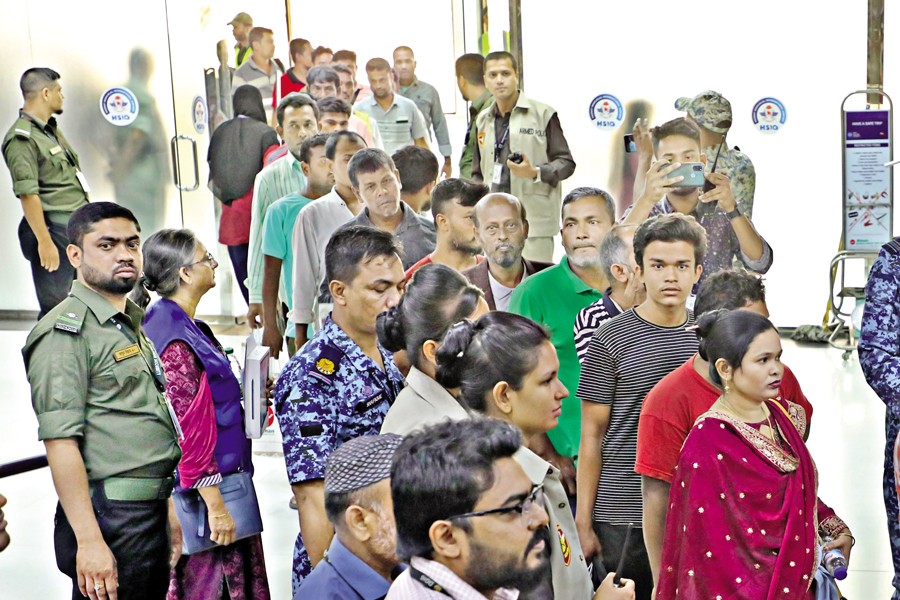
Published :
Updated :

Remittance inflow hit a record high of US$3.29 billion in March, marking 65 per cent year-on-year increase compared to the same period last year. However, behind the glossy figures lies a grim reality: when juxtaposed with a growing procession of deaths among Bangladeshi expatriate workers, this economic success rings hollow.
The data from the Wage Earners' Welfare Board paints a chilling picture of this escalating tragedy. Since 2020, the number of migrant worker deaths has steadily climbed, reaching a staggering 4,813 last year alone - increasing from 4,552 in 2023, and 3,140 recorded in 2020. On average, Bangladesh is receiving 400 bodies each month, that means thirteen bodies in a single day. Since 1993, at least 57,216 of the country's hardworking citizens have returned home in coffins.
Most of these deaths occurs in the Middle East, with Saudi Arabia, the primary destination for Bangladeshi workforce, topping this list, followed by Malaysia, the UAE, Oman, and Kuwait. Saudi Arabia saw 1,626 Bangladeshi deaths last year alone.
A significant proportion of these deaths are attributed to "natural causes" such as stroke or brain haemorrhage. But what is quite unacceptable is that Bangladesh authorities readily accept the explanations provided against the deaths as mentioned in the deceased expatriate workers death certificates provided by host countries without further scrutiny.
How can it be that a majority of these deceased individuals were young, between the ages of 38 and 42, many succumbing within a short period of their employment? These were individuals deemed medically fit, possessing medical certificates to prove it, before embarking on their overseas journey. What unseen forces are at play that are claiming the lives of these healthy, young men in such alarming numbers? Why isn't the government launching any investigations to determine the underlying causes of these deaths?
Human rights activists say that the extreme temperatures prevalent in Middle Eastern countries, coupled with potentially hostile working environments, inhumane work pressures often stretching 12 to 18 hours a day, unsanitary living conditions are likely significant contributors to conditions like stroke and heart disease.
Unsafe working condition and physical abuse may well be another significant cause of death of migrant workers. Earlier many aggrieved families complained of witnessing physical injuries or marks on the returned bodies, only to be met with a wall of silence or dismissive explanations. The foreign missions, meant to look after the interest of the Bangladeshi citizens abroad, display a lacklustre attitude that is insensible, to say the least. This inaction not only betrays the trust of our expatriates and their families but also emboldens unscrupulous foreign employers to exploit and abuse our workers with impunity, knowing there will be no serious repercussions. These vulnerable individuals have none to help when their employers exploit them.
While speaking to the media the Adviser for Expatriate Welfare Ministry Asif Nazrul said that the government is now providing free ambulance services and a certain burial cost to deceased expatriates. But more than just a free transport home after death, the families of these deceased expatriates deserve to know the truth - the exact causes of their loved ones' death and, more importantly, what measures will be implemented to prevent such tragedies from recurring. The government must prioritise the well-being and safety of its overseas workforce, not just count their remittances. A comprehensive investigation into these alarming death rates, coupled with proactive measures to ensure safe and humane working conditions, is not just a moral imperative; it is a fundamental responsibility the nation owe to those who contribute so significantly to its prosperity. The silence must be broken, and justice must be sought for our fallen remittance heroes.


 For all latest news, follow The Financial Express Google News channel.
For all latest news, follow The Financial Express Google News channel.